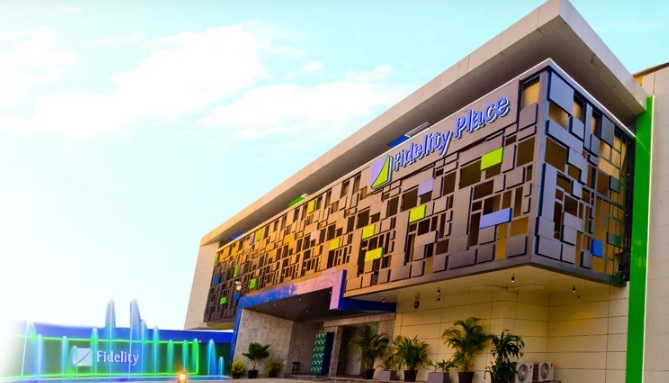Fidelity Bank Plc found itself in the eye of a financial storm today, compelled to issue a robust rebuttal to media reports suggesting a Supreme Court ruling had saddled it with a crippling ₦225 billion damages payment. The bank, a prominent player in Nigeria’s financial sector, has clarified that while a judgment debt exists stemming from a decades-old transaction inherited from the defunct FSB International Bank, its calculations present a vastly different, and significantly smaller, financial reality.
In a detailed press release seen by Condia, Fidelity Bank confirmed the Supreme Court judgment but stated the issues trace back to a 2002 credit facility of $3 million granted by FSB International Bank (which Fidelity later acquired) to G. Cappa Plc. This facility was secured with a mortgage on a property in Ikoyi, Lagos.
According to Fidelity Bank, G. Cappa defaulted on the loan, leading FSB to sell the leased interest in the property to Sagecom Concepts Limited in 2011 after a Federal High Court judgment affirmed the bank’s right as a legal mortgagor. However, the transfer was not seamless. The initial court ruling declined to order vacant possession, redirecting that specific issue to the Lagos State High Court. G. Cappa reportedly remained in possession, continuing to collect rents. This prompted Sagecom to sue both Fidelity Bank (as successor to FSB) and G. Cappa in 2011, seeking damages for breach of contract and possession of the property. Sagecom’s claim was primarily for liquidated damages, calculated as rentals on the property plus interest.
Fast forward to 2018, the Lagos High Court awarded judgment in favour of Sagecom against both G. Cappa and the Bank, a decision that was subsequently appealed up to the Supreme Court.
Read also: Fidelity Bank cuts fraud losses by 88% in H1 2024
Herein lies the core of the current dispute. Fidelity Bank states it is “willing to settle the obligation” now that the appeal process is exhausted. However, the bank points to “significant ambiguities in the judgment resulting in difficulties in calculating the actual financial liability”. The bank’s computation, based on the exchange rate when the cause of action arose in 2005, pegs the figure at approximately ₦14 billion payable by G. Cappa and the Bank.
Fidelity further argues that even if a more recent exchange rate from the trial court’s judgment date (January 30, 2018) were applied—citing a January 2025 Supreme Court clarification in Anibaba v Dana Airlines Limited that foreign currency judgment debts should be converted at the trial court judgment date rate—the sum would be just under ₦30.7 billion. This amount, the bank insists, would primarily be the responsibility of G. Cappa Plc, “who delayed delivery of possession of the apartments from 2005 till June 2018,” with a contribution from the bank. The bank has since applied to the Supreme Court for “a clarification and inquiry into the proper interpretation of the judgment and the computation of the actual quantum properly and lawfully payable”.
Amidst this legal and media wrangle, Fidelity Bank has moved swiftly to reassure its stakeholders. “Fidelity Bank remains a very strong and profitable financial institution and amongst the most capitalised Bank in Nigeria today with international operations,” the statement read, adding, “The Bank is under no bankruptcy and has always been in a position to discharge its proper and lawful obligations”. The bank pointed to its publicly available Q1 2025 financial results as evidence of its strong financial position.
The bank’s Profit Before Tax (PBT) surged by an impressive 167.8% to ₦105.8 billion, a substantial increase from ₦39.5 billion in Q1 2024. This growth was mirrored in its Gross Earnings, which rose by 64.2% year-on-year to ₦315.4 billion from ₦192.1 billion in the same period last year.
The bank has consistently highlighted growth in its digital user base and transaction volumes, reflecting a broader trend across the African financial sector. Alongside these technological pushes, in 2023, following the completion of the acquisition of Union Bank UK, Fidelity Bank disclosed it would expand into 5 African countries via acquisition.
Get passive updates on African tech & startups
View and choose the stories to interact with on our WhatsApp Channel
Explore




